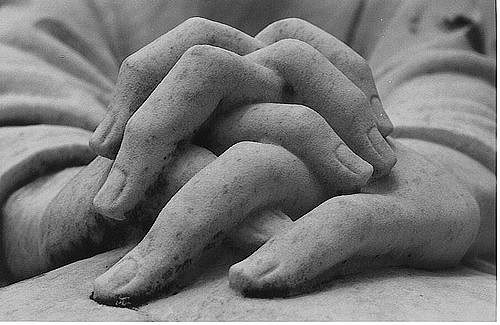More than 54 million Americans have arthritis, including about half of all older adults. People with arthritis generally feel pain or stiffness in their joints–knees, hips, shoulders, wrists, fingers and toes. While there are more than 100 different types of arthritis, the two most common types are osteoarthritis and rheumatoid arthritis. Gout is also a form of arthritis.
With arthritis, the tissue lining your joints becomes inflamed. You may experience redness, heat, swelling. Over time, the inflamed tissue may be damaged. Your eyes, heart and skin can also be affected by inflammation. In addition to pain, arthritis symptoms include fever, rashes, itching, weight loss and trouble breathing.
Only your doctor can diagnose whether you have arthritis. You should explain where you hurt. Your doctor may x-ray your joints and may also draw blood,
Older adults are most likely to have osteoarthritis, which tends to affect their hips, knees and fingers. Injury to a joint in youth can predispose to arthritis in later life. With rheumatoid arthritis, your joints, particularly hands and feet, become inflamed because your body’s immune defense system is not working as it should. Your internal organs can also be affected. Many people feel sick, have a fever, or feel tired.
People with gout have crystals build up in their joints, particularly their big toes.
Prescription drugs can sometimes help alleviate the pain and swelling. If your doctor gives you a prescription, be sure you understand when to take it, for example, before or after a meal and whether you should take the medicine with milk, to avoid a stomach upset. If your doctor prescribes cream, be sure to find out how often to use it as it can both ease the pain and cause a rash.
As with most chronic conditions, you can help manage your pain and other symptoms by staying fit, eating healthy and maintaining a healthy weight. Your doctor might prescribe physical therapy. Otherwise, stretching, range of motion exercises, low-impact aerobics, swimming, tai chi and yoga can all be helpful. A daily walk, swim or bike ride could also help a lot. Always check with your doctor to make sure particular exercises are safe for your condition. Ice packs can also ease the pain, as can warm showers and rest for the sore joints.
Beware of unproven quick-fix arthritis remedies you see on TV or social media. They can be harmful. Disregard claims that you can be cured. Arthritis cannot be cured by magnets, copper bracelets, chemicals, special diets or radiation. At best, symptoms can be controlled. Talk to your doctor before treating yourself to be safe.
Here’s more from Just Care:











Arthritis can also freeze finger joints which make it difficult to hold small objects like pens or needles. My doctor insists that I have osteoarthritis and my fingers aren’t red or swollen but several joints are definitely welded and I cannot bend them. The rest of my joints and areas in my hands still work but hurt a lot of the time. I find that compression gloves help more than any med.
…I suffer from both Rheumatoid and Osteoarthritis which began to have a a serious effect on me about five years ago and has only become worse. I have been forced to give up drawing, painting, and music, my handwriting is pretty much illegible, my computer keyboard speed is less than half or what it used to be (I can only use one finger on my right hand which is almost useless). I have also lost a great degree of grip in both hands.
…and that is only the beginning as I also suffer from stiffness and pain in my shoulders hips, knees and ankles as well as the bones in mu legs. putting shoes and socks on is a real struggle at times. as I can barely raise my legs high enough. After two evaluations and appeals I was found to be eligible for SS Disability as my only ork background is in a fairly physical occupation and the loss of fine dexterity and grip in my hands pretty much disqualifies me from any office or assembly work.
For treatment I have turned to CBD cannabis (which is legal in my state) which helps better than OTC NSAIDs (that rot the stomach liver and kidneys out) or prescription meds that have a number of undesirable side effects (I’d rather deal with the stiffness than say feel sick to my stomach all day, or deal with the risk of opioid addiction).
Unfortunately where I live we have an often damp cool climate which doesn’t help matters much. The places which would be better for me climate wise tend to either prohibit the use of cannabis in any form or make the medicinal variety prohibitively expensive and difficult to acquire.